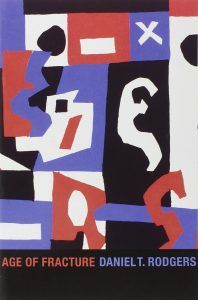Daniel T. Rodgers at Eurozine:
 By the end of the twentieth century, the landscape of social thought had changed radically. The pressures bearing down on individuals had not in the least diminished. But, to a great extent, earlier ways of imagining self and society had broken apart. Strong notions of society receded from the forefront of language and imagination. Structures and institutions became less visible. Talk of power grew more abstract. In their place,rights-bearing, choice-making, autonomously acting individuals took centre stage in social thought.
By the end of the twentieth century, the landscape of social thought had changed radically. The pressures bearing down on individuals had not in the least diminished. But, to a great extent, earlier ways of imagining self and society had broken apart. Strong notions of society receded from the forefront of language and imagination. Structures and institutions became less visible. Talk of power grew more abstract. In their place,rights-bearing, choice-making, autonomously acting individuals took centre stage in social thought.
One found these socially unencumbered actors more and more frequently and acrossmore and more domains of political and economic discourse. Historians talked less about the pressures of society and more about recovering the ‘agency’ of human actors. Economists replaced macroeconomic models with micro-economic extrapolations from the preference-satisfying choices of individual actors.
more here.
